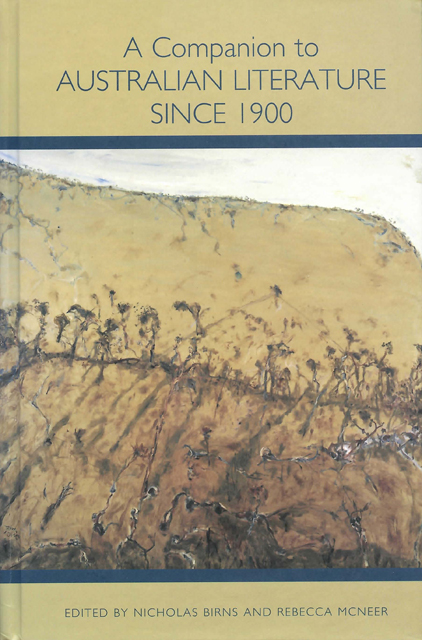Book contents
- Frontmatter
- Dedication
- Contents
- Chronology of Main Events in Australian History, 1901–2005
- Acknowledgments
- Note on the Cover Illustration and Artist
- Introduction
- Part 1 Identities
- Part 2 Writing Across Time
- Part 3 International Reputations
- Part 4 Writers and Regions
- Part 5 Beyond the Canon
- Notes on the Contributors
- Index
5 - Jewish Writers in Australia
Published online by Cambridge University Press: 10 March 2023
- Frontmatter
- Dedication
- Contents
- Chronology of Main Events in Australian History, 1901–2005
- Acknowledgments
- Note on the Cover Illustration and Artist
- Introduction
- Part 1 Identities
- Part 2 Writing Across Time
- Part 3 International Reputations
- Part 4 Writers and Regions
- Part 5 Beyond the Canon
- Notes on the Contributors
- Index
Summary
Without looking at him Mother replied, “I always said our son would have to struggle here just as I did back home. I knew it from the first day we landed in this golden kingdom.”
— Judah Waten, Alien SonFear had left me. I wasn’t afraid any more. I hated that fear. I had been afraid so much, and then it stopped. If I had to pay a price for that in Australia, I didn’t mind.
— Susan Varga, Heddy and MeThe Two Mothers represented in these two passages represent the full spectrum in terms of how parents might have felt about bringing their children to Australia. Judah Waten’s mother, who came from Russia in 1911, came to regret her decision, at least for herself — perhaps not for her children, whom she never removed from Australia. From the moment Waten’s mother stepped from the boat, she wanted to go back. Her reference to Australia as a “golden kingdom” might be ironic but it might not be — she might have been acknowledging that, even if it was a place from which she might feel permanently estranged, Australia still represented opportunities for her children that she could only have dreamed of in Russia. And yet the persistence of her criticism and the power of her lament also support the supposition that she is being bitter and sarcastic — Australia was, for her, no golden kingdom at all. She turned her children over to the new land while she herself could not follow, remaining permanently estranged both from the land and from the people her children became.
Susan Varga’s mother, Heddy, survived the war in Hungary with two small children. She wanted very much to leave Europe and all that it represented behind, although she tried, through furnishings and her style of daily life, to keep alive small pieces of her Jewish Hungarian culture and heritage. There is no difficulty understanding what she is expressing — whatever price had to be paid had to be paid. However, she may not have been the person paying the price. She married a man whose wife and two small sons had been murdered at Auschwitz.
- Type
- Chapter
- Information
- A Companion to Australian Literature since 1900 , pp. 87 - 104Publisher: Boydell & BrewerPrint publication year: 2010

